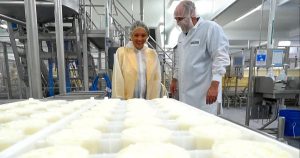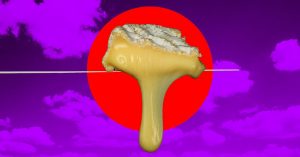
Mexico has been working on new standards for cheese for years to make sure that consumers are not buying products that are bulked up on cheap ingredients like vegetable oil, but the efforts now threaten to add significant costs and delays to U.S. exports.
The U.S. Dairy Export Council and the National Milk Producers Federation stood behind Mexico’s efforts to create new standards of identity for the cheese sold in Mexico. USDEC even participated with the Mexicans in a working group during the process.
“There are unscrupulous people out there trying to cheat,” says Jaime Castaneda, USDEC senior vice president for trade policy. “Unfortunately, that exists.”
But U.S. producers should not bear the brunt of Mexico’s effort to reform problems in the domestic industry, say Castaneda and Becky Rasdall, IDFA vice president for trade policy and international affairs.
“It’s a concern because (Mexico) doesn’t require the same level of testing for their domestic product,” said Rasdall. “The level of testing they’re requiring doesn’t make sense.”
While it’s unclear how Mexico would police its domestic producers, the country is threatening a costly and unprecedented system to make sure that imports are not adulterated.
The latest version of Mexico’s standard definition of cheese – dubbed NOM-223 – provided a shock to the U.S. industry that sold $428 million worth of cheese to Mexican buyers last year. Whereas the instructions on how to conform to the standard had originally been voluntary, they are now mandatory and call for third-party certification that involves intricate testing – something Castaneda said could be very costly and depress trade.
The corresponding conformity assessment procedures, or CAPs, Mexico issued in its latest version of NOM-223 that was published in February, goes against the spirit of the U.S.-Mexico-Canada Agreement and it doesn’t make much sense, says Castaneda. No other country, including the U.S., requires that level of prescriptive demands of its imports to demonstrate compliance with quality standards.
“The U.S. government trusts that our trading partners are sending product that complies with our standards of identity,” he told Agri-Pulse. “It’s not a food safety issue. It’s a quality issue.”
USDEC and NMPF reacted immediately after the latest version on NOM-223 was published in February, and the groups have already gotten results from their complaints.
“In view of the importance of USMCA and, especially, the close relationship that unites us, it is very important that we carefully consider the measures that each of our governments takes, especially in the regulatory environment. For years our organizations have worked in a very efficient way for the commercial integration of our two countries,” USDEC President and CEO Krysta Harden and NMPF President and CEO Jim Mulhern said in a letter dispatched March 11 to Mexican Economy Minister Tatiana Clouthier Carrillo.
Mexico’s National Regulatory Improvement Commission, or CONAMER – the country’s equivalent to the U.S. Office of Management and Budget – has for now agreed to put NOM-223 on hold and reevaluate the economic burden it would put on U.S. exporters, Castaneda said.
That agreement follows on a second victory. The Mexican dairy sector fought to classify imported skim milk powder as an adulterant in Mexican cheeses, but that was strenuously objected to by USDEC and others within an official “Working Group.”
Milk is a legitimate ingredient in cheese production, and Mexico does not produce enough milk for all of its domestic demand, said Castaneda. The U.S. exported about $600 million worth of milk powder to Mexico in 2020, according to IDFA data.
“Some protectionist voices in Mexico wanted to compare having an additional milk ingredient like skim milk powder to vegetable oil,” he said. “We had to fight that. There’s nothing that should prohibit you from using milk ingredients in the production of cheese.”
The U.S. won that argument, and the prohibition was dropped from an earlier draft of NOM-223.
The rise in concerns about adulterated cheese, or “plastiqueso,” as it’s been called, has been documented in social and traditional media over the past few years as the Mexican government worked on its official definition of what is and is not real cheese.
The publication El Universal quoted artisanal cheeses store owner Georgina Yescas in an October report, saying “The point is that the industry that makes imitation cheeses has not been regulated and there is no rule that tells them the extent to which they are safe in their production.”
U.S. industry officials say they doubt the mandatory compliance proposal could be imposed on all of the many manufacturers in the country. On top of that, any regulation that made milk powder more expensive to those domestic manufacturers would do real damage to Mexican producers and consumers.
“We strongly believe that the existence of open and fair trade is the basis for the prosperity and growth of our two countries, especially in sectors such as dairy, where there are synergies, complementarities, and an opportunity for common growth,” Harden and Mulhern said in their letter.























